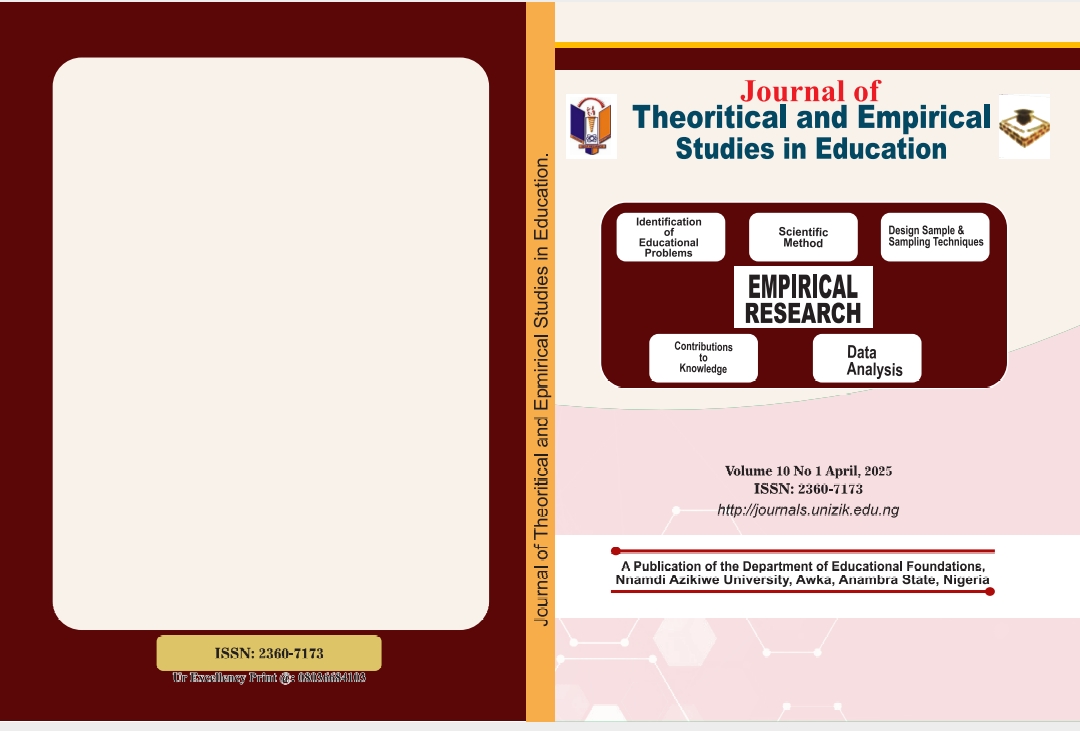Impact of a Growth Mindset Programme on Academically Underachieving Adolescents’ Beliefs about Intelligence
Keywords:
Intelligence, mindset, poor performance, secondary school, underachievement, under-resourced contextAbstract
We adopted a mixed-method research design using an explanatory sequential approach to investigate the potential of a growth mindset intervention programme to enhance beliefs about intelligence among academically underachieving students
in Nigeria. Academically underachieving students are likely to hold fixed mindsets about intelligence, which may hinder their intellectual growth. Our study was anchored on Carol Dweck’s growth mindset theoretical framework. Seventy underachieving students were identified using a discrepancy method from two schools in Anambra State, Nigeria; using purposive sampling, all identified students were selected for the intervention. These students were assigned to two groups for a quasi-experimental quantitative study: an experimental group (N = 37) and a control group (N = 33). Data were collected using a validated scale for adolescents’ beliefs about intelligence and a focus group discussion to explore the mechanisms through which the intervention enhanced these beliefs. The intervention programme spanned a school term of 13 weeks. Quantitative data were analyzed using mean, standard deviation, and ANCOVA, while qualitative data underwent thematic content analysis. Findings indicated that the experimental group (M = 3.14, SD = 0.25) showed a non-significant improvement in their beliefs about intelligence compared
to the control group (M = 3.05, SD = 0.32), F(1, 69) = 1.752, p > 0.05. Focus group insights revealed that while some students embraced brain malleability and shifted toward a growth mindset, others retained fixed beliefs about intelligence as innate, limiting the programme’s overall impact. Sessions on neuroplasticity and resilience proved transformative for many, yet ingrained views underscore the need for extended reinforcement to achieve widespread change. Implications of these findings were discussed.




